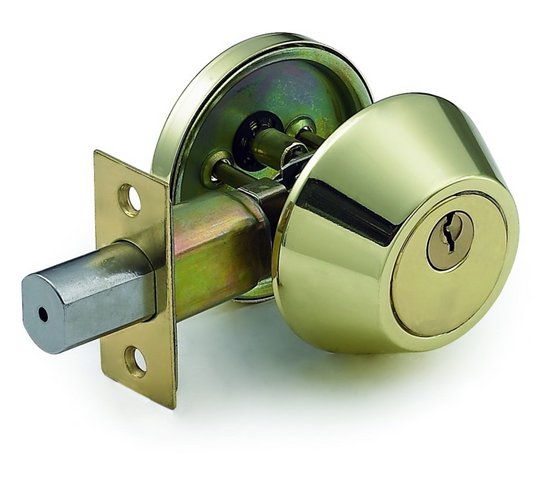Sliding glass doors are a popular architectural choice in many homes, providing easy access to outdoor spaces and a seamless transition between indoor and outdoor living. However, their design can also present unique security challenges. With the increasing number of reported burglaries, the need for robust security measures for sliding glass doors has never been more critical. This article explores various types of locks available for sliding glass doors, examining their effectiveness, advantages, and drawbacks.
The Importance of Securing Sliding Glass Doors

According to the FBI, over 2 million burglaries are reported in the United States each year, with a significant percentage of these occurring through unsecured entry points, including sliding glass doors. These doors are often more vulnerable than traditional exterior doors, making it essential to invest in a reliable locking mechanism. Consider the following factors when thinking about the security of your sliding glass door:
- Ease of access for intruders
- Potential for broken glass
- Visibility of valuables inside
- Overall safety of the neighborhood
Understanding the various locking options available can help homeowners make informed decisions regarding their security needs.
Types of Locks for Sliding Glass Doors
There are several types of locks designed specifically for sliding glass doors, each with its unique features and advantages. Below, we explore the most common types of locks.
1. Pin Locks

Pin locks are one of the simplest and most cost-effective locking mechanisms for sliding glass doors. They consist of a metal pin that slides into a hole drilled into the door frame, preventing the door from being opened.
- Advantages:
- Low cost
- Easy to install
- Effective against forced entry when used properly
- Drawbacks:
- Can be easily defeated with a hammer or screwdriver
- Requires drilling into the door frame, which can void warranties
While pin locks can provide a basic level of security, they are often best used in conjunction with other locking mechanisms for enhanced protection.
2. Sliding Door Deadbolts
Sliding door deadbolts offer a more secure option compared to pin locks. These locks require a key or thumb turn to lock and unlock, providing an extra layer of security against break-ins.
- Advantages:
- Higher resistance to forced entry
- Available in various styles, including single and double-cylinder options
- Drawbacks:
- Can be more expensive than pin locks
- Installation may require professional help
Deadbolts are an excellent choice for homeowners seeking a more secure locking mechanism for their sliding glass doors.
3. Keyed Locks

Keyed locks are similar to traditional door locks in that they require a key to operate. These locks can be installed on the sliding door handle or frame and offer a more sophisticated locking mechanism.
- Advantages:
- Enhanced security features
- Variety of designs available
- Compatible with most sliding glass door models
- Drawbacks:
- Keys can be lost or stolen
- More expensive than simpler locking systems
Keyed locks provide peace of mind and are particularly effective when combined with other locking systems.
4. Foot Locks

Foot locks are a secondary locking mechanism that can be installed at the bottom of a sliding glass door. These locks engage the door into the frame and are activated by stepping on a lever.
- Advantages:
- Easy to use
- Provides an additional layer of security
- Inexpensive
- Drawbacks:
- Not a standalone security solution
- May not be effective against sophisticated break-in techniques
Foot locks are best used in conjunction with other locks for maximum security.
5. Smart Locks
![]()
Smart locks have gained popularity in recent years, incorporating technology to enhance security and convenience. Many smart locks can be controlled through a smartphone app, allowing for remote locking and unlocking.
- Advantages:
- Remote access and control
- Integration with home security systems
- Activity logs to monitor who enters and exits
- Drawbacks:
- Higher initial cost
- Dependence on batteries and technology
- Potential vulnerability to hacking
Smart locks represent the future of home security, but homeowners should weigh the pros and cons before opting for this technology.
Choosing the Right Lock for Your Sliding Glass Door
When selecting a lock for your sliding glass door, consider the following factors:
- Security Needs: Assess your neighborhood’s crime rate and your personal security requirements.
- Budget: Determine how much you are willing to invest in your sliding door security.
- Installation: Choose a lock that fits your DIY skills or hire a professional for installation.
- Compatibility: Ensure that the lock is compatible with your specific sliding glass door model.
Case Studies and Statistics

In a study by the University of North Carolina, it was revealed that 60% of burglars admitted to avoiding homes with visible security measures. Homes with sliding glass doors that had multiple locking mechanisms were less likely to be targeted compared to those with a single lock. Additionally, statistics show that homes without any security measures are five times more likely to be burglarized than those with basic locks.
Securing sliding glass doors is vital to protecting your home and family. With various locking options available, homeowners can choose from simple pin locks to advanced smart locks, depending on their security needs and budget. While no single lock can guarantee complete security, using a combination of locks and additional security measures can significantly reduce the risk of break-ins. By understanding the strengths and weaknesses of each type of lock, homeowners can make well-informed decisions that enhance their home security and provide peace of mind.